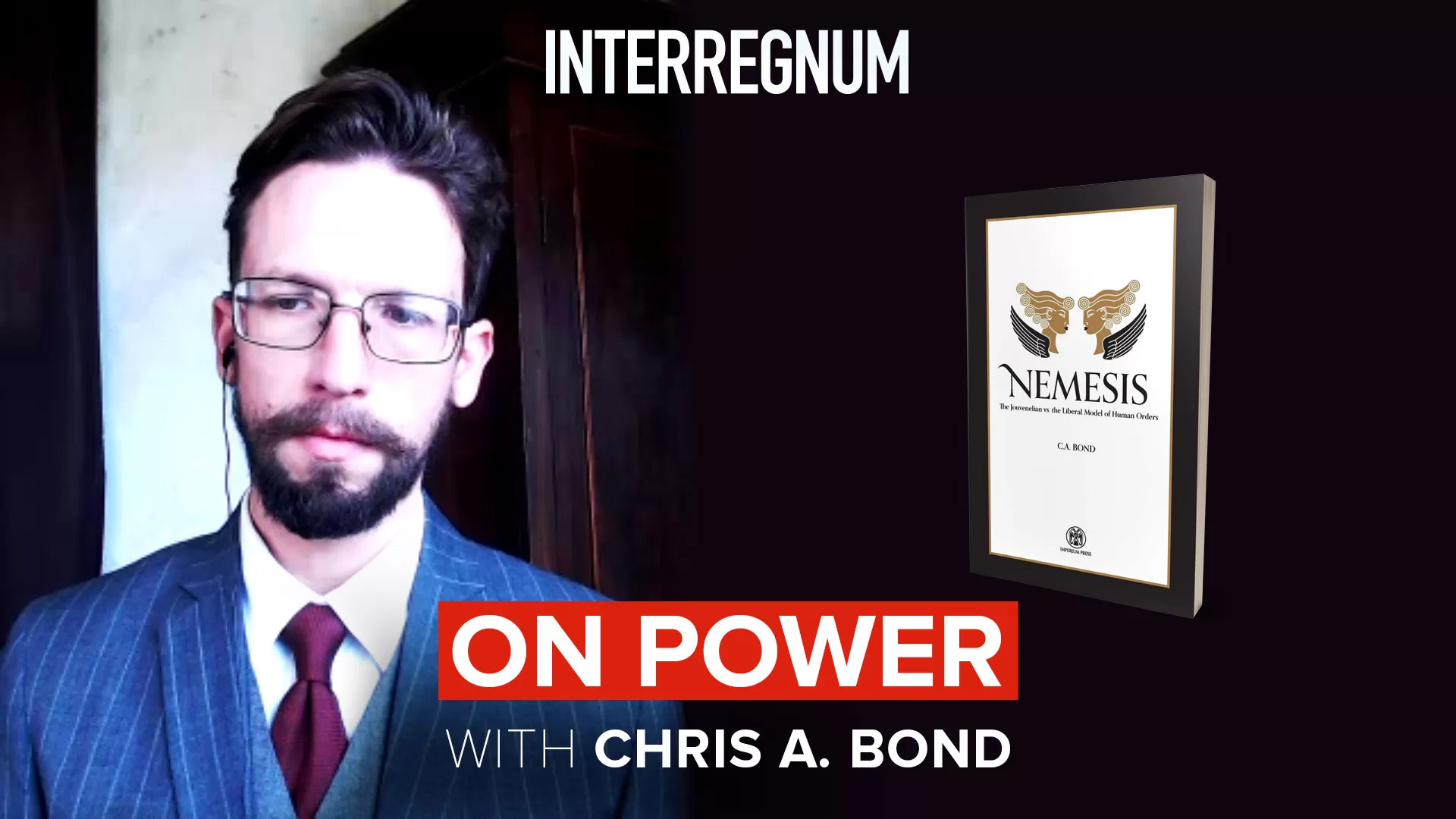Interregnum is joined by Chris A. Bond, who discusses his recent publication with us, Nemesis: The Jouvenelian vs. the Liberal Model of Human Orders, a timely and fascinating exposition of the work of Mencius Moldbug and especially Bertrand de Jouvenel. Chris guides us through the Jouvenelian theoretical model of power, which offers an incisive and profound critique of contemporary Liberalism, and attempts to pave the way for a practical overcoming of the same, by grounding our efforts in a new understanding of the interaction between ideas and social structures.
The Arktos Restoration InitiativeWe have handpicked a few distinguished titles, previously lost to censorship, befitting any refined bookshelf. These esteemed classics are now offered in limited leather-bound editions, with a mere 100 copies per title. Owning one not only grants you a collector’s item but also supports our mission to restore them in paperback for all. Your contribution aids the metapolitical battle, ensuring that vital ideas and concepts remain accessible to an ever-expanding audience. | |||
|---|---|---|---|
| I |  $129.50 |  $99.50 | |








[…] Bond Interviewed in “Interregnum” No. 46 Arktos Media (podcast) (17 December 2019) <arktos.com> (accessed, 20 February 2020); The […]
Dear Chris Bond, this was quite interesting. I just ordered your book. I have been trying to understand this tension between the central rulership (elites, essentially the modern financial players) and the individual (our “periphery”). I appreciate your clearly identifying the intermediate mechanism of politicians, administrators, the intellectual class and churchmen. Since these three broad categories of actors exist in relationship, I find it helpful to utilize the directional terms of centrad and peripherad. Thus, “towards the center” and “toward the periphery.” This is analogous to anatomical descriptions, such as the elbow being centrad to the hand. (‘Centrally’ and ‘peripherally’ are more helpful when speaking of something “at the center” and “at the periphery.”) This directional sense is helpful, I believe in reducing confusions that result from simplistic advocacy of either “centralizing” or “democratizing.” Neither can be categorically said to be better and better for all time. These terms become further complicated by the mixing of notions of central authority and tradition—as I think you and John have touched on. There is also a great chasm between–in an American context for example–of the Tea-Partiers, Freepers (Free-Republic enthusiasts), Constitutionalists, etc. on one side, and the various Liberal, Libertarian and Leftist sympathizers. One of my particular interests has been how bureaucracy works in the intermediating position and how to fashion a new view of how it should work and what the role and responsibilities of the technical authority should be vis-à-vis positional authority. I have found Alasdair MacIntyre to be very helpful as well as conversation with one of is students. On a practical level, I completely agree that President Trump was inserted into a certain positional, intermediate role without the concomitant and contextual, para-governmental and cultural institutions and language to enable him to produce profound change. Not only did he have no plans for replacing the deep bureaucrats, he had not great plans for remaking bureaucracy itself. “Spray-on” fixes are not adequate either—I am recalling the 1980s “re-inventing government” movement. These topically-applied remedies only came to be captured and corrupted by the same Machiavellian players in the permanent-class of the administrative state. One suspects that the plan was to keep Trump well-tethered. The Left’s great success has been the slow, patient march on all fronts. I have made my website go dark for a time for a special, temporary legal purpose, but I hope to encourage some interactive activity at http://www.thesecondsocietyproject.com by practitioners and more expert theorists than myself. This has to develop in parallel in order to provide the right intermediate players with a pool of ideas and people at the right time—but as you stress, it would have to be noticed and vivified and promoted by the central actors because they have chosen to select it for their designs. My efforts are humble and clumsy, to be sure. But I would urge you not be pessimistic or defeatist at all. You are on to something important for sure.